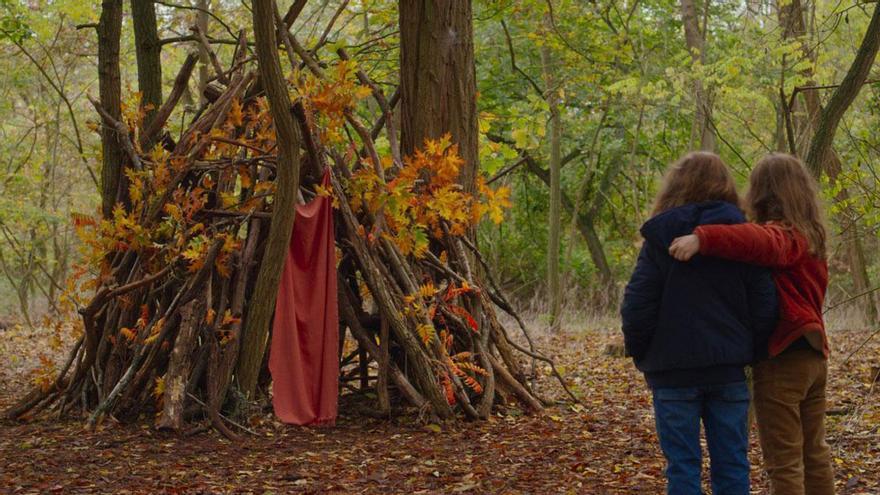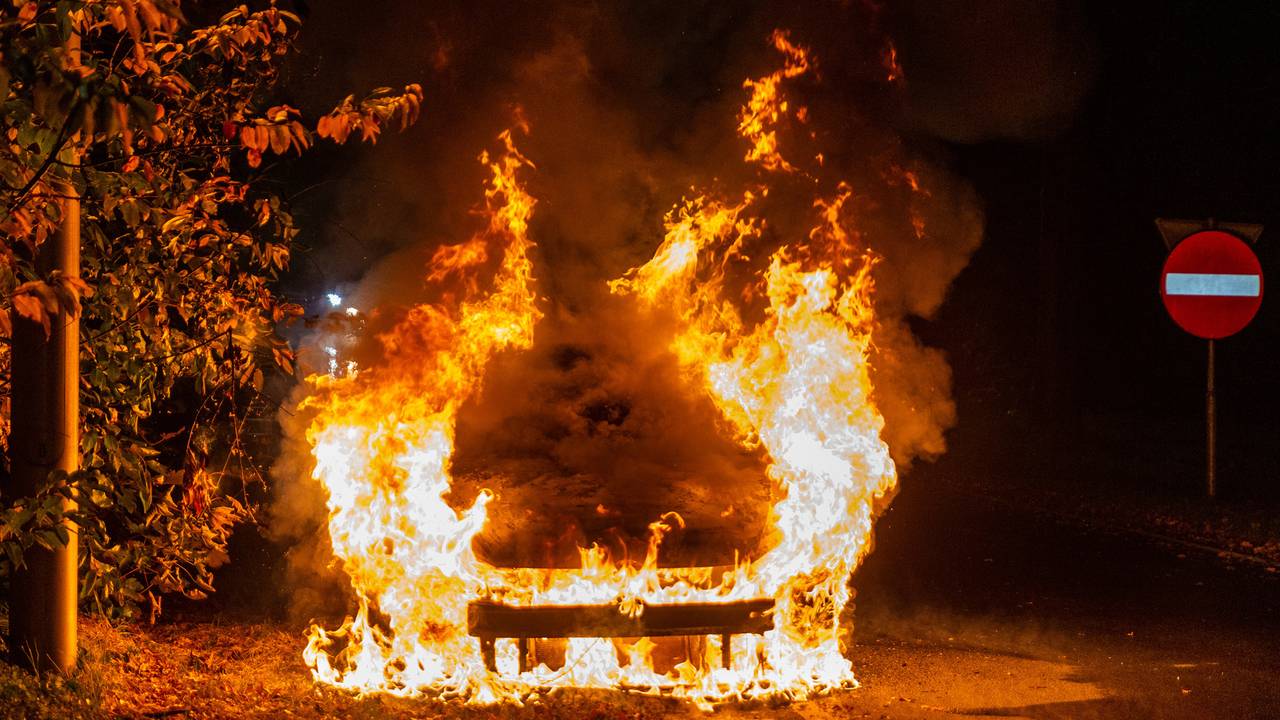-
Starting with the premiere of ‘Petite maman’, we analyze the different maternity wards shown by current cinema
-
From ‘Parallel Mothers’ to ‘Lamb’, through ‘Rescue Distance’ or ‘Titane’, several films emphasize the powerful act of giving birth and its consequences
–
In her latest film, ‘Petite Maman’, Céline Sciamma tells a story about childhood that is as simple as it is magical. A girl, Nelly, is in the woods with her mother, Marion, when she was the same age. On one side of the cabin they build together is the present, on the other side, the past. An immediate empathy will emerge between them and when they discover the true identity of each one, a set of mirrors will be established between their two faces, apparently the same, but totally different. The girl will rediscover her mother, will be able to understand the reason for her congenital melancholy, and the mother, even if she is small, will realize the dimension of what motherhood entails, of the amount of trauma that can be passed on to children without even being aware of it.
The clash between the two has something miraculous, because with hardly any words, the two recognize each other and, between childish games, they will achieve a state of understanding, of empathy. They will look at each other and understand each other, with all that that means.
This year the subject of motherhood has been placed in the foreground in a good handful of fictions. Wounded motherhood, obsessive motherhood, longed-for motherhood, absent motherhood, motherhood and her fears. A year marked by ‘Parallel Mothers’, in which Pedro Almodóvar delves into this issue, motherhood, as he had never done throughout his career. Its protagonists, who embody Penelope Cruz, Aitana Sánchez-Gijón and Milena SmitThey each belong to a generation with very different characteristics. The weight of inheritance will always be present, like a slab, but they will have something in common: The three of them are alone and have fought (or will fight) to get ahead between the instinct of their guts and the weight of the society in which they live.
Safe environment
Almodóvar proposes a new type of family, more modern, open, freed from conventions. There are many types of mothers, but the important thing, in the end, is that a safe environment is created for those children to grow up who will become adults in the future. And the fewer loads they drag, the better. It is the conciliatory message that his final image gives off.
In another of the great films of the year, ‘Titane’, Julia Ducournau captures motherhood from the transformation of the woman’s body. The protagonist will go through different stages, from hatred to reconciliation with herself, while engendering a life inside her, without knowing that the child she has in her womb, the result of its fusion with a machine, is an improved version of herself who will have the love and protection that she never had. Again, despite the burden of violence that the story reaches, the reconciling embrace of the last images serves to extirpate the previous traumas, to give birth to a stronger and healthier species, both physically and emotionally.
Unavoidable contamination
And it is that on many occasions it is inevitable that parents end up contaminating their children with their fears. This is what happens in ‘Rescue Distance’, an adaptation of the novel by Samanta Schweblin by Claudia Llosa. It describes the invisible thread that unites a mother to her child, and the whole series of fears that this union contains, which can be broken at any time.. Fatality will be present from the moment the protagonist hears a story that upsets and haunts her to such an extent that it ends up becoming reality.
Can all the details that occur around us be controlled if we hope to be able to save our children in the face of misfortune? It is an atavistic, irrational feeling, but also dangerous when it comes to perpetuating our insecurities in our offspring. Because sometimes, if our greatest terrors are summoned, they end up taking on a shape of their own.
Two upcoming films address the need to be a mother in an extreme way. In both cases, the moral dilemmas that lead to the decisions of the protagonists are crucial. to place ourselves in an uncomfortable zone in which that feeling as pure as motherhood becomes something deeply perverse.
Surrogacy
In ‘La hija’, by Manuel Martín Cuenca, the subject of surrogacy is approached in an unconventional way. A couple hides a pregnant teenager who has just escaped from a juvenile center to stay with her baby. In ‘Lamb’, winner of the last edition of the Sitges Festival, a woman, played by Noomie Rapace, snatches the creature (half animal, half human) that she just had from a sheep to turn her into her daughter by altering the natural order things, something that will bring unexpected consequences to the new family. Both take place in remote places from the rest of the world, as a way of preserving a secret impossible to understand, although for these women it acquires an existential dimension.
Related news
In all cases, motherhood is approached from a different angle, little explored, which invites us to reflect on the burdens that women carry when relating to this primitive bond. There are no roadmaps to tackle any of these stories. All are characterized by the freedom with which they approach the subject and, something fundamental, the lack of judgment.
– .


